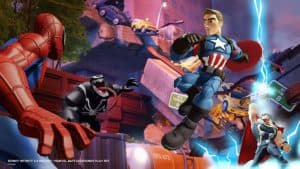Avengers AI #1
Written By: Sam Humphries Art By: André Lima AraujoAvengers AI is a series that I was really looking forward to. I didn’t need to hear the pitch to be sold, but superficially, the cover was enough. That alone got me to buy the issue, but its contents within don’t live up to the initial cool factor of an Avengers team of robots. Avengers AI #1 fails to establish the cast as interesting characters, and sets up a flawed premise for the series.
This issue explains why Hank Pym must assemble a team of robot Avengers, but leaves glaring leaps in logic. Essentially, Agent of SHIELD, Monica Chang, has assigned Hank Pym to take down an Artificially Intelligent threat that he is responsible for, with his own team of Artificially Intelligent characters. It doesn’t make much sense why Chang would trust Pym with even more free reign of his AI pals. However, we are just supposed to go with it.
As for the characters introduced, Humphries does little to make us care about the cast, as they are only used to move forward the plot. The interrogation scene plays Pym as overly arrogant, and Chang as your typical Bad Cop who we are supposed to believe is badass just because she tells us she’s a “hardcore (insert curse word)” without having her do anything overly hardcore. Humphries doesn’t justify these stereotypes, and continues to introduce various AI characters without giving them much cause for joining the team.
It’s a hard sell to draw a book filled with robotic characters and sell the emotion. Unfortunately, Araujo doesn’t live up o the challenge. Back drops are similarly uninteresting, juxtaposed with the unexpressive faces. Having said that, the mid-air fight scene with the Vision was well crafted, as it captured the organic nature of Vision’s powers and created sufficient motion between panels.
Avengers AI #1 spends too much time trying to establish its shaky premise, when the book, about such unique AI characters, could have benefitted from showcasing the cast’s interesting powers.



